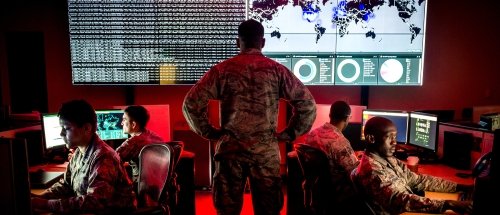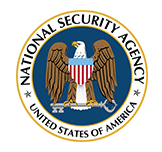
Master of Science in Cybersecurity
Secure Your Future with Specialized Information Security Skills
You know that now more than ever, organizations are looking for cybersecurity experts. Develop the business acumen and management skills needed to lead the field with Norwich University’s online Master of Science in Cybersecurity program. Arm yourself with information security best practices, organizational structure and policy development, the regulatory environment, and management strategies.
You will receive a unique online education experience from one of the first universities designated as a Center for Academic Excellence in Cyber Defense Education by the National Security Agency and Department of Homeland Security. Decade-long cybersecurity instructors are dedicated to providing you with hands-on support throughout your journey at Norwich.
Are you ready to lead your company’s business, governance, and policy decisions that lead to effective solutions to current and emerging security threats? With your Norwich degree, you will develop the skills needed to help ensure that information assets are understood, valued and protected within the complex business enterprise.
You, at Norwich
Learn from a faculty of active scholars with doctorate degrees.
Customize your studies based on your career goals and personal interests.
Develop essential skills relevant to not only careers in history but also in business, law, education, and government.
Improve your historical insight, research, writing, analysis and presentation skills.
Apply to one of four start dates per year.
Benefit from a university recognized as offering Best Value with respect to high academic quality and low net cost of attendance, according to the U.S. News & World Report.*
*Rankings are based on undergraduate programs and on students who recieved the average level of need-based financial aid.
The appearance of U.S. Department of Defense (DoD) visual information does not imply or constitute DoD endorsement.
Accreditation & Recognition

Norwich University is accredited by the New England Commission of Higher Education (formerly the Commission on Institutions of Higher Education of the New England Association of Schools and Colleges, Inc.).

Norwich University has been designated as a Center for Academic Excellence in Cyber Defense Education by the National Security Agency and Department of Homeland Security.













